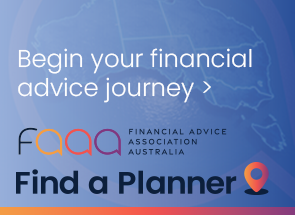Choosing the right investment strategy is a key way to grow your wealth – so it’s important to understand your investment options.
For the most part, the pool of options are largely the same but the way you choose, mix, and structure them can be tailored to meet your individual needs.
Hobart-based managing partner at Elevate Wealth, Matthew Hawkins, says investment strategies are based on two things – understanding someone’s appetite for financial risk, and the stage of life they’re in. Both these factors influence how you invest.
Investing through your super
Most people with a super fund have investment choices – a fact that most people don’t know, Hawkins says.
A lot of people believe that a self-managed super fund is the only way you can have investment choice. They don’t fully understand that there are options inside super for investments, such as term deposits.
Investment bonds
Outside super, which is the investment structure with the most preferential tax treatment, investment bonds are a vehicle that are more favorably taxed.
And after 10 years, all earnings on the investment are tax free and don’t become part of your assessable income.
According to Hawkins, investment bonds provide a vehicle for investment for a future expenditure in 10 years, which may be helping the kids into university or helping them get into a house. They are useful when you want to use your money before you can access your super at age 60.
For people who are thinking of retiring before they can access their super, bonds can also be effective in funding the period prior to retirement using an investment that that’s been favorably taxed on loan and potentially capital gains, tax exempted and maturity.
Melbourne-based Anne Graham CFP®, from Story Wealth Management says typical investments she recommends to clients include cash, term deposits, shares, ETFs, managed funds, SMAs, IMAs and unlisted assets such as property and property syndicates.
Just start small
For younger or new investors, she suggests just “dipping a toe in the water” by investing a small amount in the stock market and if it goes pear-shaped it’s not a massive loss but a learning experience.
Some of the more unusual investments she has seen recently include a client who decided to invest in gold because the people she was working with were talking about it as an investment. Graham says it wasn’t a great investment, and the people she had been listening too were earning a great deal more than her client which meant their investment needs were different.
Graham suggests before making any investment, it’s important to consider when you need the money and is it accessible. If you need the money in the short term the risk you should take is low as you don’t want to cash out an investment that has lost money, and you also want to make sure you can sell it quickly.
Investment platforms are recommended for clients with varied investments who want to ensure they can see all their investments, transact on them and have their statements, tax reports, gains and losses records housed in one place.
Getting rich slowly
Chris Smith, VISIS Private Wealth founder and partner, says his investment philosophy is “get rich slow”. Depending on the client, he recommends blue chip shares and operates a buy and hold strategy.
Bonds can be accessed through a few specialist providers but having a good relationship with your adviser enables you easier access.
Depending on your financial goals, property may also be appropriate due to the leverage bonus you can make through borrowing to buy property over the long-term but it’s not so good for retirees because liquidity becomes an issue.
Making sure you have a good relationship with your financial adviser is key to a good investment portfolio. Understanding your goals, timelines and priorities are all important to choosing the right investments and the right investment structures for you.
The Money & Life website is operated by the Financial Advice Association (FAAA). The information in this article is not intended to influence the viewer to make a decision in relation to any particular financial product, class of financial product, or interest in either of these. The FAAA is not licensed to provide financial product advice. Nor is it able to provide legal or taxation advice. The FAAA does not assume responsibility for the information accessible via any links provided in this article. Please consider seeking advice from a qualified professional to ascertain how the information in this article and the links provided may relate to you.








